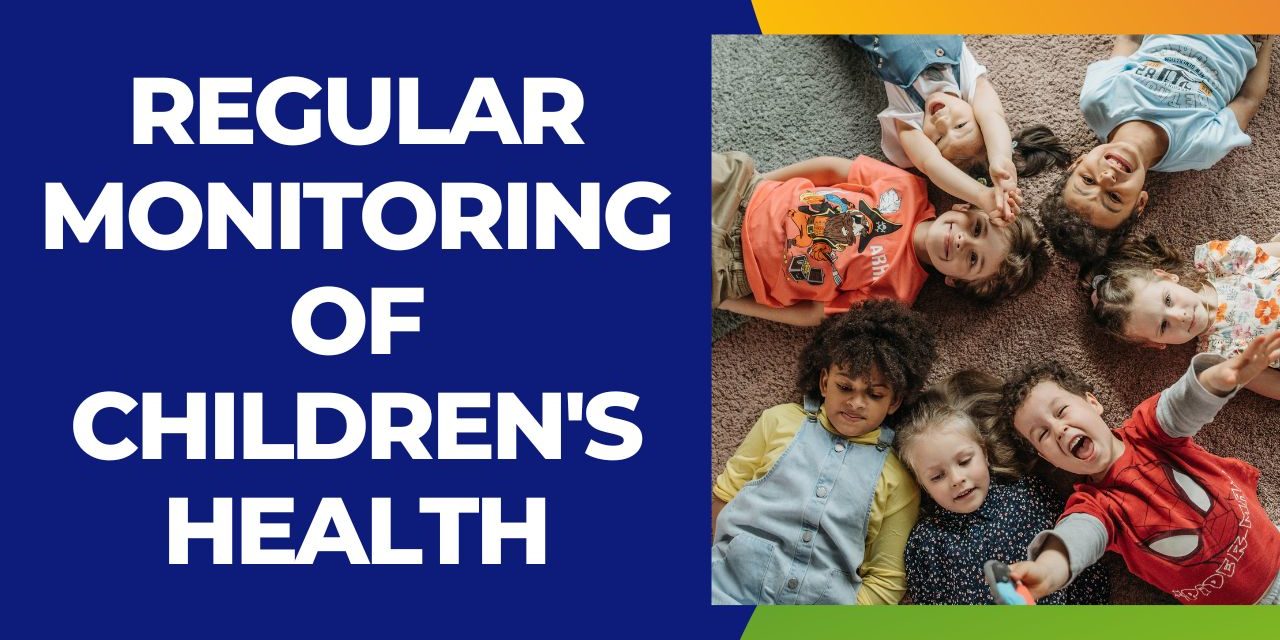Importance of regular monitoring for children’s health
Introduction:
As parents, we are committed to the well-being of our children. While it is very important to provide them with love, care and a safe environment, it is equally important to monitor their health regularly. Regular monitoring allows us to identify any potential health concerns early, take preventive measures, and ensure that our children grow up healthy and strong. In this blog post, we’ll highlight the importance of regular monitoring for children’s health and provide practical tips to help you stay proactive about their well-being.
1. Routine check-up with pediatrician:
Regular appointments with the pediatrician are key to monitoring your child’s overall health. Routine checkups enable health care professionals to monitor their growth, development, and address any specific concerns. The doctor will perform a physical exam, review medical history, administer necessary vaccinations, and provide guidance on nutrition and lifestyle choices.
2. Determination of height and weight:
Regularly monitoring your child’s height and weight is an essential part of assessing their growth. You can keep records and track your measurements using progress charts provided by healthcare professionals. Comparing their growth patterns to standard growth percentages can help identify potential problems such as malnutrition or obesity and prompt further testing if needed.
3. Vision and Hearing Screening:
Children’s vision and hearing are important for their overall development. Regular vision screenings can detect vision problems, such as refractive errors or amblyopia, early. Likewise, hearing screening helps identify any hearing impairments that may affect their speech and language development. Consult a health care professional or ophthalmologist/audiologist to determine the appropriate age for these screenings.
4. Dental Checkup:
Oral health plays an important role in a child’s overall health. Regular dental checkups help detect dental problems, ensure proper tooth development, and establish good oral hygiene habits. Dentists can provide guidance on brushing techniques, fluoride treatments, and addressing concerns such as cavities or misaligned teeth.
5. Mental and Emotional Health Assessment:
Monitoring your child’s mental and emotional well-being is just as important as their physical health. Watch for any changes in their behavior, mood swings, or signs of anxiety or depression. Encourage open communication with your child, allowing them to express their feelings. If you have persistent concerns, seek guidance from a pediatrician, school counselor, or mental health professional.
6. Vaccination and Immunization:
Making sure your child’s immunizations are up-to-date is critical to preventing infectious diseases and protecting their health. Be aware of the recommended vaccination schedule and consult with a health care professional to make sure your child gets the necessary vaccines at the right time.
7. Promotion of healthy lifestyle:
In addition to monitoring their physical health, it is important to encourage and model healthy lifestyle habits. Eat a balanced diet, exercise regularly, get adequate sleep, and limit screen time. Teach your child about the importance of good hygiene, hand washing, and personal care practices to prevent the spread of disease.
Result:
Regular monitoring of your child’s health is a proactive way to ensure their well-being and detect any potential problems early. By maintaining a regular schedule of checkups, tracking their growth, monitoring vision, hearing and mental health, and promoting a healthy lifestyle, you can lay the foundation for your child’s optimal development. Remember, your active involvement and cooperation with health care professionals plays an important role in protecting your child’s health and happiness.










